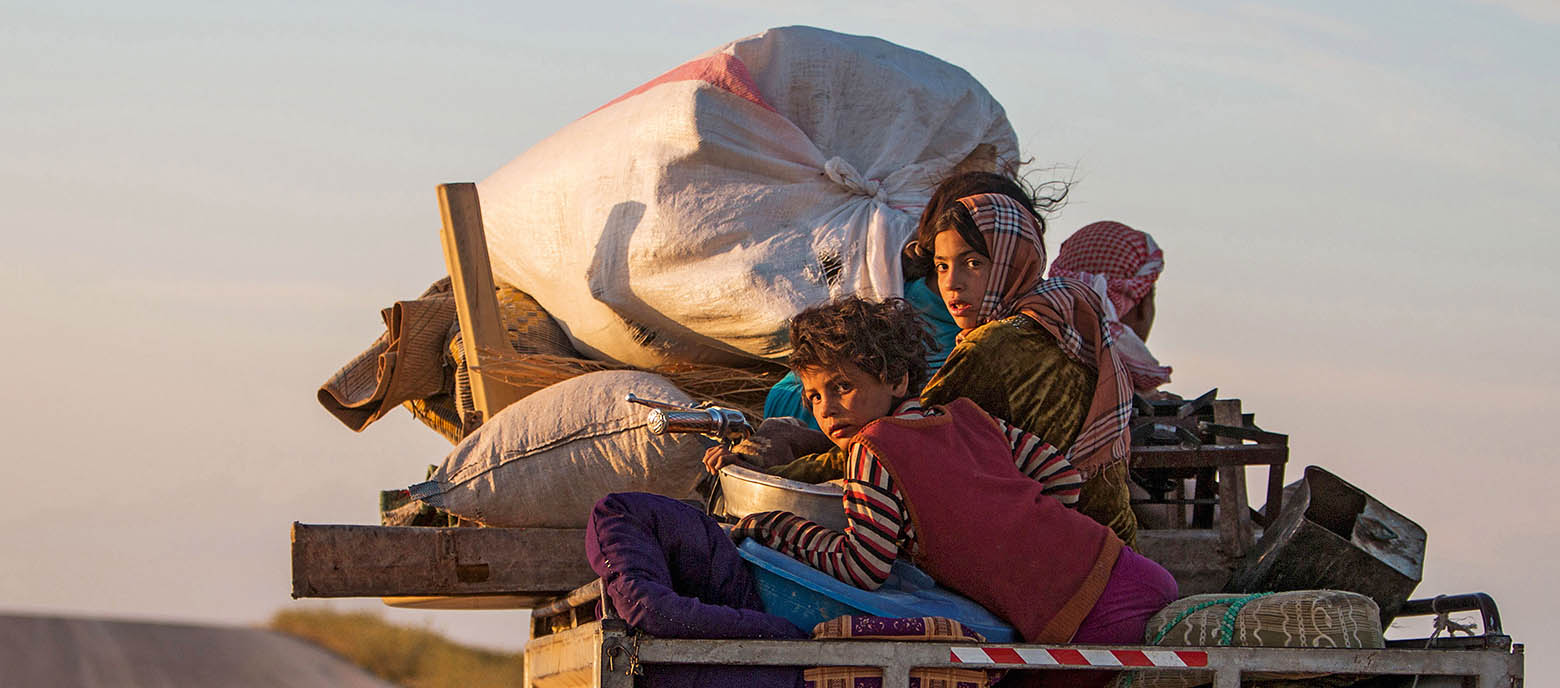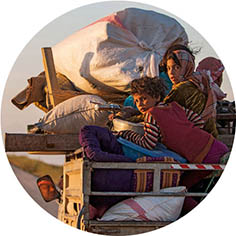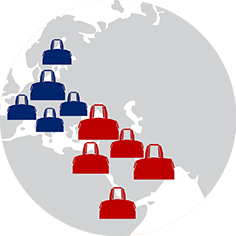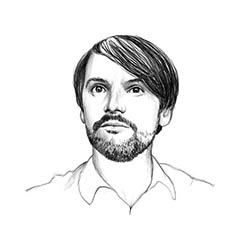Interview: refugee crisis
‘Tremendous challenge’
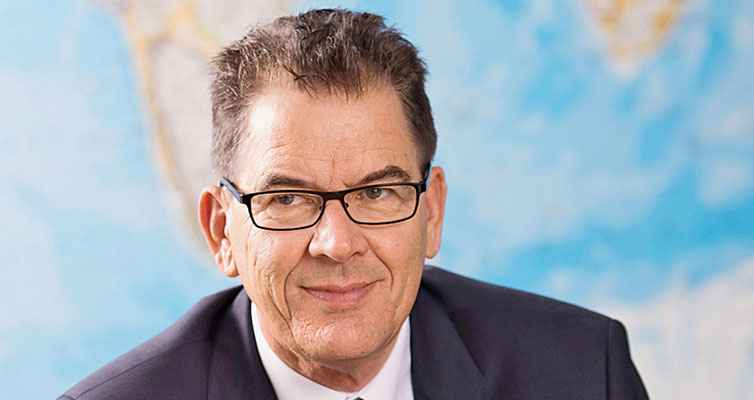
Refugee numbers are higher than ever. What are the causes, in your view?
Many crises and conflicts have become entrenched or have erupted again; examples are Syria, Iraq, South Sudan, Somalia and Eritrea. And the list goes on: 15 new armed conflicts have broken out in the last five years alone. People are fleeing from violence and persecution. The war in Syria has triggered the largest upheaval: around four million people have fled abroad and 7.6 million have been displaced within Syria itself. Poverty, disease, hunger, rapidly growing social inequality, and climate change are other frequent causes of migration. Very often, it is the young people who leave their home countries because they see no prospects for the future.
What is Germany’s role and responsibility here?
We have to work together on the issue of refugees and migration. The European Union faces a major test of strength here. We urgently need a common refugee policy with fair burden-sharing. Germany is clearly facing up to its responsibility and is taking action. We need effective integration of foreign, security and development policy, just as the Chancellor called for in her three-point plan: save refugees, combat people smuggling and eliminate the causes of migration.
"Ensuring the prospect of a better future in their own and in host countries"
Where and how is Germany engaged, through its development policy, in ameliorating the suffering of refugees?
My task, as Germany’s Development Minister, is to combat the causes of migration. That means ensuring that people have the prospect of a better future in their own and in the host countries. To that end, I have set up three special initiatives, restructured the budget and secured additional funding. This year and next, we will be able to invest up to EUR 1 billion in this area. We are implementing a range of projects at the local level. Let me tell you about a few of them: in Jordan, we are providing a clean water supply and sanitation in communities that are hosting refugees. In Lebanon, 80,000 children are now attending school with Germany’s support. On the Turkish-Syrian border, community centres are being set up for Turks and Syrians. In South Sudan, returnees are learning how to re-establish their livelihoods through farming. And in Kosovo, we plan to work with the Dortmund Chamber of Crafts on providing training for young mechanics.
Most refugees don’t want to leave their homes. How can we help them stay there?
Most of the refugees I talk to say that they want a future in their own countries, but despair and hardship force them to leave. Many want to return home when circumstances permit. It is not enough for us Europeans simply to think about ways of keeping these people at bay. We need to reach out and tackle the root causes, and that means investing in development. We need economic and training programmes for refugees in their home countries, including programmes to support refugees returning home, along with advisory services. Development policies which aim to combat the causes of migration must be much broader in scope, however. It’s about making globalisation more equitable through fair world trade. We need social and environmental standards along global supply chains so that people upstream in the production process can earn a decent living from their labour. We must move from free trade to fair trade. Each and every one of us can share in this responsibility by making the right consumer choices.
"We must work together to tackle the causes of migration"
Must the world accept that higher refugee numbers are now a fact of life?
Worldwide, there are almost 60 million refugees and displaced persons – that’s around eight million more than last year. The refugee crisis will not solve itself. On the contrary, it is getting progressively worse. Most refugees risk their lives to make their journey and endure terrible suffering. That’s not something we should accept. We are not helpless onlookers: we must work together to tackle the causes of migration. The refugee crisis vividly demonstrates to us every day that if we fail to get a grip on hunger and poverty, these problems will come to us. That’s why the refugee crisis is a tremendous challenge for all of us.
published in akzente 4/15
Desire for a new life
Essay: Refugees
Unevenly distributed
Infographic
A matter of chance
Guest article: Saša Stanišić
